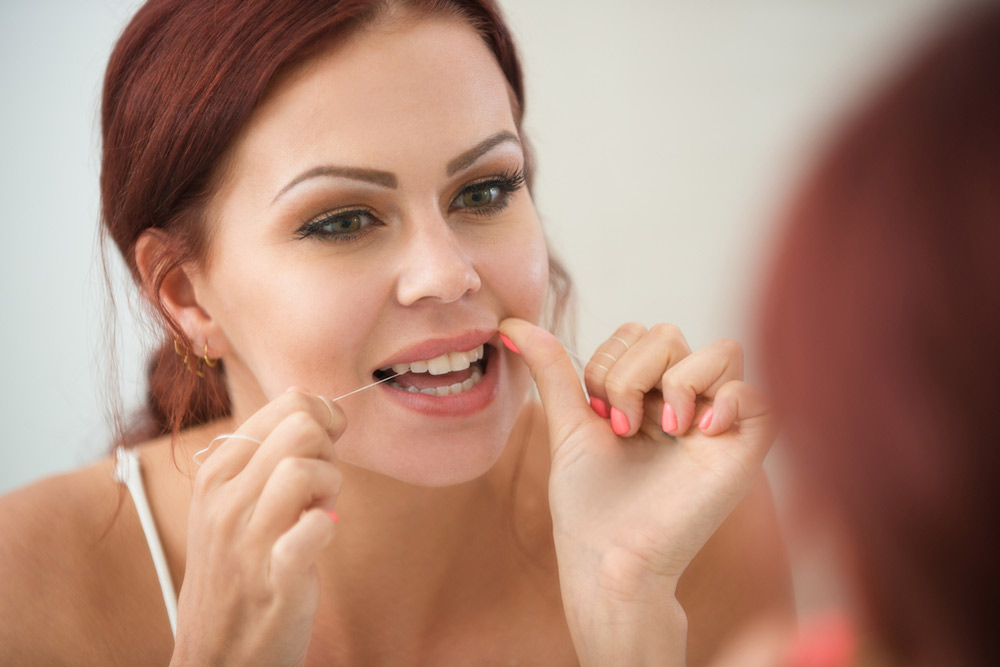Peroxide Mouth Rinse: Top 5 Benefits of Gargling with Hydrogen Peroxide

Hydrogen peroxide is a ubiquitous drugstore item that many people use as a disinfectant and even as a household cleaner. Some people swear by a hydrogen peroxide mouth rinse for its many beneficial properties. In this post, we are taking a closer look into the benefits of gargling with hydrogen peroxide and looking at exactly what it does inside your mouth.
What Is Hydrogen Peroxide?
Hydrogen peroxide is a combination of hydrogen and oxygen that forms a chemical compound. It has several beneficial properties and can be used in multiple areas from cleaning to dental care. As with any chemicals, hydrogen peroxide should be used with care and can sometimes cause side effects. Should any issues arise from using hydrogen peroxide discontinue use and seek medical advice.
How to Use Hydrogen Peroxide as a Mouth Rinse
The concentration of hydrogen peroxide for dental purposes should never exceed 3% and should be diluted with water prior to use. If you are using food grade hydrogen peroxide, then the concentration can be up to 35%. Stronger concentrations of hydrogen peroxide can cause extreme side effects such as sensitivity and blistering.
1) When using hydrogen peroxide as an oral rinse, you should use dilute it by double the volume of water. In other words, one part hydrogen peroxide and two parts water. This will result in a 1% concentration of hydrogen peroxide.
2) Pouring the hydrogen peroxide solution in your mouth, swish the rinse around your mouth and then tilt your head back and gargle with it. Don’t be alarmed if the solution foams slightly.
3) Spit the mouth rinse out after no longer than 90 seconds and remember never to swallow it.
Teeth Whitening
In a majority of teeth whitening products that are used by dentistry professionals and the box standard over the counter whitening products you might find in your local drug store, hydrogen peroxide will likely be the key ingredient. When first using a hydrogen peroxide mouth rinse you might notice whiter looking teeth straight away; however, the whiteness may have a limited effect. In order to achieve a lasting whiteness, hydrogen peroxide mouth rinse should be used on a regular basis and up to two times a day. The solution will remove minor staining and soft substances.
Fighting Halitosis
Chronic bad breath, also known as halitosis, is a very embarrassing condition that can arise due to tonsillitis, a dry mouth, sore throat, or gum disease. Hydrogen peroxide mouth rinse has a rather peculiar taste which some people find unbearable. However, it can help to combat bad breath. The antibacterial properties of hydrogen peroxide will fend off the bacteria and viruses in the mouth preventing bad breath. Using a hydrogen peroxide mouth rinse should follow brushing and flossing, and when combatting bad breath, it is best used at night before you go to sleep. Any food debris that remains in the mouth at night attracts a lot of attention from bacteria making it more active.
Treatment of Canker Sores
Canker sores are also known as mouth ulcers or aphthous ulcers and form on the tongue, inside the lips, and inside the cheeks. They usually appear with a yellowish-white center and can have a bright red border. Canker sores are incredibly uncomfortable and can make drinking and eating very difficult. They normally form due to physical trauma, stress, poor diets, vitamin deficiencies, or because of a low immune system. Hydrogen peroxide’s antibacterial properties come into effect again here as well as its antiseptic quality. Regularly using hydrogen peroxide mouth rinse can thoroughly clean the infected area and promote healing. For canker sores, the solution should be used twice a day.
Relieving a Sore Throat
Contracting the common cold, a virus or flu will often start by causing a sore throat. Those who suffer from acid reflux can also acquire a sore throat as the gastric juices sometimes shoot up into the throat. Hydrogen peroxide mouth rinses are used to help relieve sore throats and tonsillitis. By killing the bacteria in the back of the throat, it can prevent further infection and stop the symptoms from becoming worse. The antibacterial property will assist your body in fighting the infection which can sometimes lead to a faster recovery. Excessive mucus that is formed from certain infections and viruses can cause irritation in the throat and using hydrogen peroxide mouthwash will loosen the mucus from the throat making it easier to dispose of. The most challenging thing about using hydrogen peroxide mouth rinse when feeling unwell is the taste of it.
Improves Oral Health
Due to its antiseptic and antibacterial qualities, hydrogen peroxide is considered a powerful disinfectant that can prevent mouth sores and help any wounds heal faster. Some studies have found that using a hydrogen peroxide mouth rinse after brushing and flossing helped to reduce gum inflammation and prevent gum disease. Those with gingivitis or periodontitis may discover that gargling with hydrogen peroxide solutions beneficial.
A Note about Hydrogen Peroxide Mouth Rinse
Hydrogen peroxide should be stored in a dark bottle as it degrades fast and loses its benefits when exposed to light and heat. For this reason, hydrogen peroxide should be used as it is poured. There are sight risks when using hydrogen peroxide for a prolonged amount of time, and so it is recommended that you seek advice from your dentist first. As mentioned above, hydrogen peroxide does have an unpleasant taste but using a salt water solution afterward may help to balance the taste. Alternatively, you can mask the taste of hydrogen peroxide with mint. The use of hydrogen peroxide mouthwash is considered safe for pregnant women as long as the correct dilution process has been followed and it is not ingested. For peace of mind speak with your doctor before using the solution.
There are many benefits to using hydrogen peroxide as a mouth rinse, and while it may not be a long-term solution, it can definitely help in with oral health care. If you are unsure about using a hydrogen peroxide mouth rinse simply ask your dentist and they will advise on what will work best.


